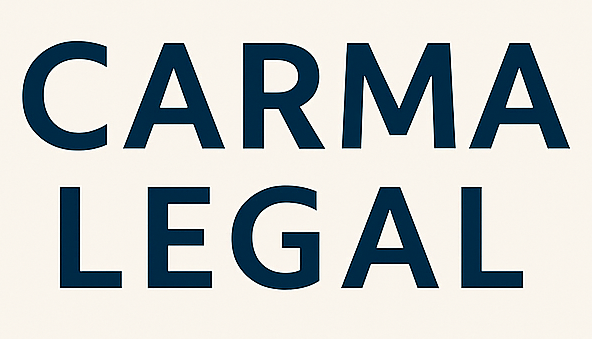understanding spinal cord injury claims
A spinal cord injury lawyer can be your strongest ally when you face life-altering trauma. Spinal cord injuries (SCIs) often result from car crashes, falls, sports accidents or workplace incidents and can lead to permanent impairments such as paralysis, chronic pain and loss of bodily functions. According to the Cleveland Clinic, there are roughly 18,000 new traumatic spinal cord injury cases in the United States each year, with an average age of 43 at the time of injury. Worldwide, between 250,000 and 500,000 people suffer SCIs annually (Cleveland Clinic).
As you navigate the overwhelming medical treatments, rehabilitation and ongoing care, you also confront mounting bills, lost wages and profound personal changes. Engaging a dedicated spinal cord injury lawyer helps you secure compensation that reflects the full scope of your losses—economic and non‐economic alike. Throughout this guide, you will learn how to evaluate legal counsel, understand potential damages and prepare effectively for consultations, empowering you to make confident choices for your future.
why you need specialized counsel
Spinal cord injury claims present unique challenges. These cases involve complex medical evidence, long‐term care projections and aggressive insurance defenses. Without specialized legal advocacy, you may accept a settlement that falls far short of covering:
- lifetime medical expenses
- home modifications
- lost earning capacity
- personal care assistance
- pain and suffering
A lawyer with a focus on catastrophic injuries and wrongful death brings the expertise to:
- navigate medical records and expert testimony
- calculate future care costs accurately
- negotiate with insurers familiar with delaying tactics
- prepare compelling litigation strategies if needed
Moreover, a specialized attorney often maintains relationships with rehabilitation specialists, life‐care planners and vocational experts. This network strengthens your case by quantifying damages and demonstrating long‐term needs, ensuring you receive the full support necessary for recovery and quality of life.
key qualities to look for
When seeking legal representation for your spinal cord injury case, prioritize these attributes:
- Experience in SCI litigation
- Proven track record of high‐value settlements
- Medical and technical understanding
- Access to reputable expert witnesses
- Personalized attention and communication
experience in SCI litigation
A track record of handling spinal cord injury claims demonstrates a lawyer’s familiarity with relevant statutes, case law and procedural nuances. Ask potential attorneys about:
- the number of SCI cases they have resolved
- average compensation secured for clients
- success rate at trial versus settlement
medical and technical understanding
Spinal cord injuries vary in severity—from incomplete lesions that allow some function to complete paralysis below the injury site. Your lawyer must interpret:
- MRI and CT scan findings
- neurological evaluations
- rehabilitation reports
- prognosis for potential improvement
A solid grasp of these details ensures precise valuation of your damages and effective presentation of your needs.
access to expert witnesses
Economic and non‐economic damages hinge on expert testimony. Lawyers should collaborate with:
- neurosurgeons and orthopedic specialists
- rehabilitation therapists
- life‐care planners
- vocational experts
- economists
Reliable experts help establish:
- projected medical costs
- specialized equipment needs
- home and vehicle modifications
- diminished earning capacity
- pain and suffering valuations
evaluating attorney credentials
Before you commit, vet each candidate thoroughly. Consider these steps:
- review professional profiles and bar status
- examine case results and published verdicts
- request client references or testimonials
- confirm no history of disciplinary actions
comparing case results
A concise comparison table can clarify differences between firms:
| metric | Firm A | Firm B | Firm C |
|---|---|---|---|
| years handling SCI claims | 15 | 8 | 12 |
| average SCI settlement | $2.1 million | $1.3 million | $1.8 million |
| trial success rate | 70 percent | 50 percent | 65 percent |
| lead attorney certification | board certified in PI | general practice | certified civil litigator |
| expert witness network size | extensive | moderate | extensive |
Use this table as a discussion starter when you meet with each lawyer.
verifying client feedback
Client testimonials reveal how attorneys communicate, manage expectations and handle setbacks. Look for feedback on:
- responsiveness and empathy
- clarity of legal strategy
- smoothness of the billing process
- willingness to take cases to trial
calculating your damages
A comprehensive evaluation of your losses guides both negotiation and litigation. Damages in a spinal cord injury lawsuit typically fall into three categories:
- economic damages
- non‐economic damages
- punitive damages
economic damages
Economic or “special” damages cover quantifiable financial losses. Common elements include:
- past and future medical expenses
- home and vehicle modifications
- in‐home care and attendant services
- lost wages and benefits
- reduced earning capacity
economic damages example
| expense type | cost estimate |
|---|---|
| emergency treatment | $50,000 |
| surgeries and hospital stays | $200,000 |
| rehabilitation therapy | $150,000 |
| home modifications | $100,000 |
| assistive equipment | $75,000 |
| lost wages (5 years) | $300,000 |
| total economic damages | $875,000 |
Your lawyer should work with financial experts to refine these figures based on your unique situation.
non‐economic damages
Non‐economic or “general” damages address intangible losses such as:
- pain and suffering
- emotional distress
- loss of enjoyment of life
- loss of consortium
These amounts vary widely but can equal or exceed economic damages in catastrophic injury cases.
punitive damages
In rare instances where gross negligence or intentional harm is involved, courts may award punitive damages. These are designed to punish the defendant and deter future misconduct.
preparing for your consultation
An effective consultation helps you and your attorney determine if you have a strong case and establish a clear path forward. Before you meet, gather:
- medical records and treatment summaries
- accident reports and witness statements
- photographs or videos of the scene and your injuries
- insurance correspondence and settlement offers
- employment records showing lost income
key questions to ask
- What is your experience with spinal cord injury cases?
- Who in your firm will handle my case day to day?
- How do you bill for expert witnesses and other costs?
- What is your approach to negotiations versus trial?
- How long do you anticipate my case will take?
Document the answers to compare firms objectively.
choosing the right firm
Beyond credentials and case results, consider how each firm aligns with your values and needs.
communication style
You deserve clear, timely updates. Evaluate:
- frequency and channels of communication
- personalization versus automated messages
- accessibility of the attorney and support staff
resources and support
Large firms may offer more extensive resources, while smaller boutiques can provide more personalized service. Assess:
- size and expertise of support teams
- availability of in‐house investigators
- in‐house medical or vocational consultants
moving forward confidently
Once you select your spinal cord injury lawyer, you will enter a stage of active case development:
- formal retainer agreement
- thorough case investigation
- coordination with medical and vocational experts
- preparation of detailed damage calculations
- negotiation or litigation strategy
Throughout each phase, maintain open communication with your legal team. Ask for regular status reports and be candid about new medical updates or personal concerns.
taking action today
Your future quality of life depends on securing the resources and care you need. By choosing the right spinal cord injury lawyer, you protect your rights and ensure your case reflects the gravity of your suffering. If you are also dealing with related injuries, your attorney may coordinate referrals to a traumatic brain injury attorney, paralysis injury attorney or a serious injury lawyer to address every aspect of your claim.
Don’t delay. The sooner you enlist experienced legal advocacy, the better positioned you are to gather critical evidence, preserve witness testimony and calculate long‐term projections. Contact a dedicated spinal cord injury attorney now, and take the first step toward the justice and compensation you deserve.








